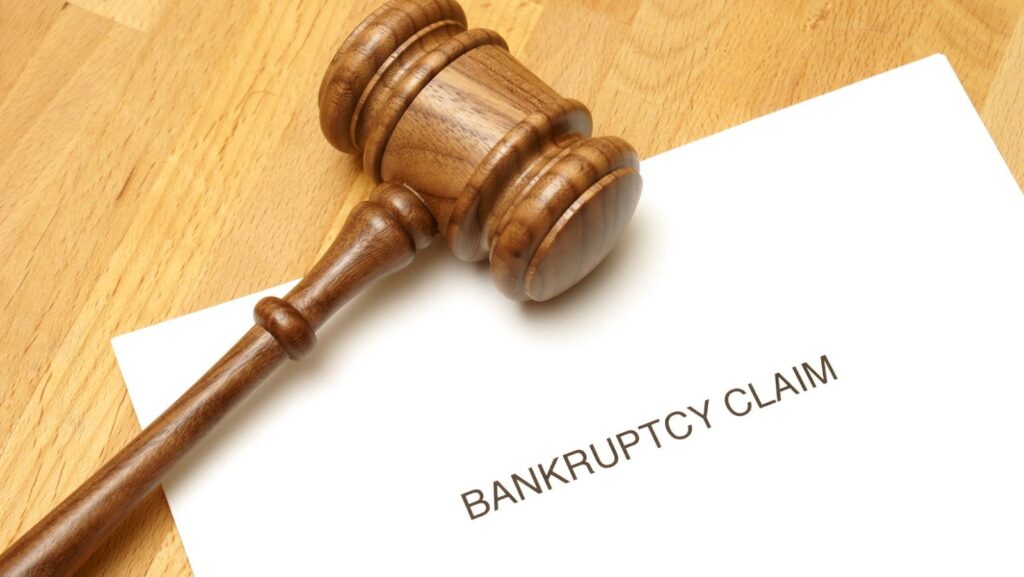
Can I File Bankruptcy Without My Spouse? Here’s What You Need To Know
One common question for married individuals considering bankruptcy is whether they can file for bankruptcy without their spouse. The answer is yes, it is possible to file for bankruptcy without your spouse. However, a few important factors must be considered before making this decision.
Firstly, it’s important to establish whether the debts in question are in the sole name of the person filing for bankruptcy or if they are joint debts. If the debts are in the sole name of the filer, then they can file for bankruptcy alone, without their spouse. However, if the debts are joint, both parties must file together and list the debts in their bankruptcy petition.
Additionally, it’s important to consider the potential impact on the non-filing spouse’s credit score. Even though the non-filing spouse is not legally responsible for the debts listed in the bankruptcy petition, their credit score may still be affected. It’s also possible that joint debts may need to be paid off in full or refinanced after the bankruptcy case, which could impact both parties financially.
Overall, while one spouse can file for bankruptcy without the other, it’s important to carefully weigh the potential implications and consult with a bankruptcy attorney to fully understand your options and legal obligations.
Filing For Bankruptcy As An Individual
If you’re facing overwhelming debt, you may wonder, “can I file bankruptcy without my spouse?” In most cases, the answer is yes. While filing for bankruptcy jointly with your spouse is possible, it’s not a requirement. You have the option to file as an individual, and this may be beneficial for several reasons.
First, filing for bankruptcy as an individual means only your debts will be included in the bankruptcy proceedings. This can be beneficial if your spouse has significant debt of their own or if they have a good credit score that they wish to maintain. By filing individually, you can avoid negatively impacting your spouse’s credit score.
Second, if you’re eligible for Chapter 7 bankruptcy, filing as an individual may allow you to keep more assets. Each state has exemptions that protect certain types of property from bankruptcy liquidation. If you file jointly with your spouse, your joint assets will be considered, and you may not be able to exempt as much property as you would if you filed individually.
However, if you live in a community property state such as California, Texas, or Arizona, your spouse’s income and assets may still be considered in the bankruptcy proceedings, even if you file as an individual. This is because in these states, community property laws dictate that any income earned and property acquired during marriage is considered community property and owned equally by both spouses. Therefore, you should consult with a bankruptcy attorney in your state to determine how community property laws may affect your case.
In summary, you can file for bankruptcy without your spouse, and it may be beneficial to do so if your spouse has significant debt or if you wish to protect their credit score. By filing as an individual, you may also be able to keep more of your assets if you’re eligible for Chapter 7 bankruptcy. However, if you live in a community property state, your spouse’s income and assets may still be considered, and you should consult with a bankruptcy attorney for guidance.
Can I File Bankruptcy Without My Spouse
As a married couple, you and your spouse may have accumulated various debts, such as mortgages, credit card debt, or personal loans. If you’re considering bankruptcy, you may wonder if you can do so without involving your spouse.
The answer is: It depends on your state and the type of bankruptcy you file for. For example, in a community property state, any property or debt acquired during the marriage is considered joint, and both spouses are responsible. Therefore, filing for bankruptcy without including your spouse’s information is impossible in such states.
However, in non-community property states, only the debts incurred by an individual are considered their responsibility. So, for example, if you file for bankruptcy under Chapter 7, you can discharge your debts without your spouse. But if you file for Chapter 13, you may have to include your spouse’s debts and income in your payment plan.
Before filing for bankruptcy without your spouse, consult a bankruptcy attorney in your state to understand the eligibility requirements and potential consequences.
Here are some important things to consider when filing for bankruptcy without involving your spouse:
* If you have joint debts, your creditors can still go after your spouse for the remaining debt even if you file for bankruptcy.
* If you file for bankruptcy without your spouse and discharge your debts, your credit score may improve, but your spouse’s credit score may still be affected.
* Your spouse may be liable for debts not discharged during your bankruptcy filing.
Whether you can file for bankruptcy without your spouse depends on your state’s laws and the type of bankruptcy you choose to file for. It is essential to seek professional guidance to understand your options and the potential impact on your financial future.

Exceptions And Considerations
If you’re considering filing for bankruptcy without your spouse, there are some exceptions and considerations to remember. Here are a few points to consider before filing:
1. Community Property States
The United States has nine community property states: Arizona, California, Idaho, Louisiana, Nevada, New Mexico, Texas, Washington, and Wisconsin. These states have different laws on distributing marital property and debts during bankruptcy. For example, in these states, if certain assets or debts are acquired during the marriage, they are considered to be owned equally by both spouses, even if only one spouse is filing for bankruptcy. As such, it can be difficult to file without your spouse’s involvement.
2. Joint Debts
If you and your spouse have joint debts, it’s possible that even if you alone file for bankruptcy, your spouse’s credit may still be impacted because creditors can still go after the non-filing spouse for any unpaid debts. However, filing jointly can help alleviate this issue as it eliminates discharge of creditor claims against both spouses in one filing.
3. Income
Your income plays a significant role in determining if you can file for bankruptcy without your spouse. If you plan to file for Chapter 7 bankruptcy, your income will be used to determine if you qualify for the means test, which determines your eligibility for this type of bankruptcy. If you have a joint income with your spouse and your income alone does not meet the means test requirements, you may still need to include your spouse’s income.
It’s important to consult with a bankruptcy attorney to determine the best course of action for your circumstances before making any decisions. They can evaluate your finances and help determine if filing alone or jointly with your spouse is the best option.

Conclusion
In conclusion, filing for bankruptcy without your spouse is possible, but it depends on various factors and circumstances. For example, you may want to consider filing without your spouse if they have a significant amount of debt or a good credit score that you want to avoid damaging. However, if you live in a community property state, your spouse’s income and debts may still be considered part of the bankruptcy process.
It’s important to note that bankruptcy can significantly impact your credit score, and filing without your spouse may not necessarily protect them from potential collection efforts or lawsuits. Therefore, it’s crucial to consult with a bankruptcy attorney to determine the best course of action for your specific situation.
Whether you can file for bankruptcy without your spouse depends on your state laws and individual circumstances. It’s essential to weigh the potential benefits and consequences carefully before making any decisions, and seek professional advice to ensure you understand your options.





